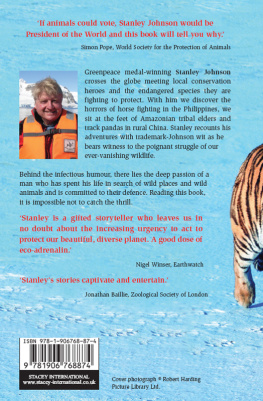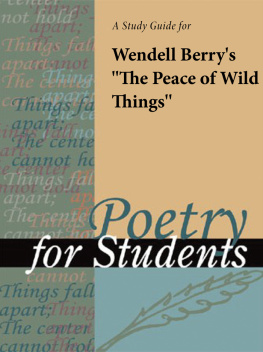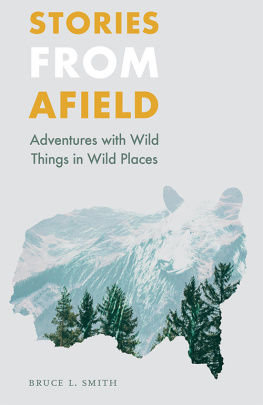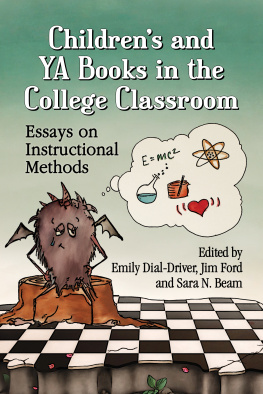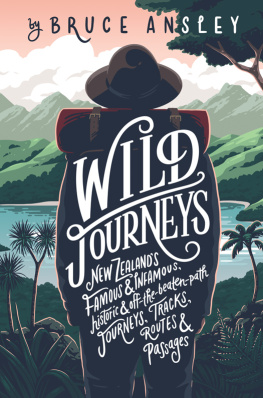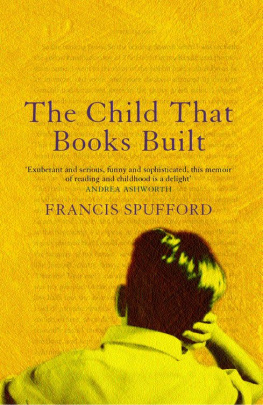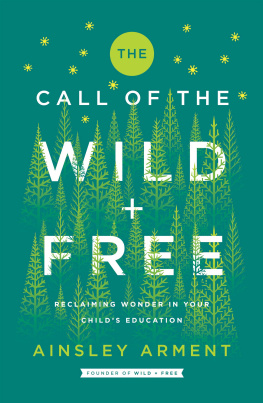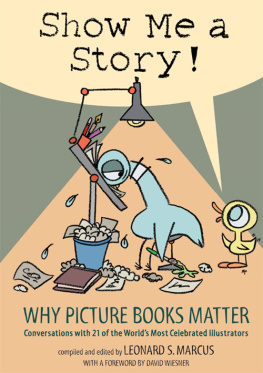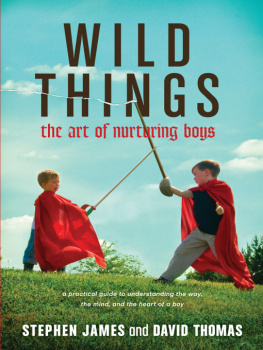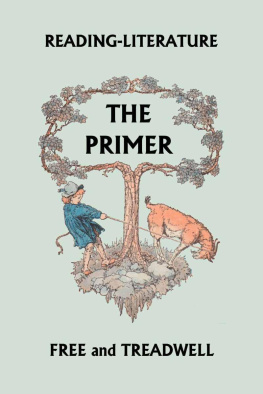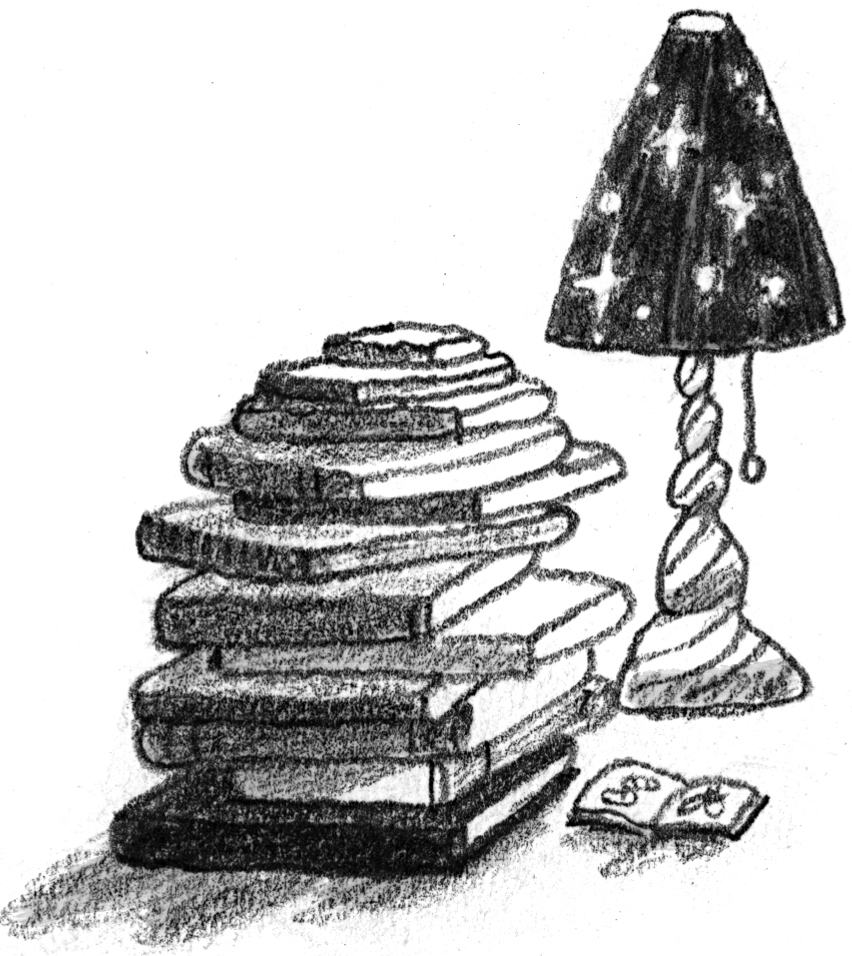Thank you for downloading this Simon & Schuster ebook.
Get a FREE ebook when you join our mailing list. Plus, get updates on new releases, deals, recommended reads, and more from Simon & Schuster. Click below to sign up and see terms and conditions.
CLICK HERE TO SIGN UP
Already a subscriber? Provide your email again so we can register this ebook and send you more of what you like to read. You will continue to receive exclusive offers in your inbox.
We hope you enjoyed reading this Simon & Schuster ebook.
Get a FREE ebook when you join our mailing list. Plus, get updates on new releases, deals, recommended reads, and more from Simon & Schuster. Click below to sign up and see terms and conditions.
CLICK HERE TO SIGN UP
Already a subscriber? Provide your email again so we can register this ebook and send you more of what you like to read. You will continue to receive exclusive offers in your inbox.

Simon & Schuster
1230 Avenue of the Americas
New York, NY 10020
www.SimonandSchuster.com
Copyright 2017 by Bruce Handy
Portions of Chapter 3 were adapted from Where the Wild Things Werent, an essay published in The New York Times Book Review .
All rights reserved, including the right to reproduce this book or portions thereof in any form whatsoever. For information address Simon & Schuster Subsidiary Rights Department, 1230 Avenue of the Americas, New York, NY 10020.
First Simon & Schuster hardcover edition August 2017
SIMON & SCHUSTER and colophon are registered trademarks of Simon & Schuster, Inc.
For information about special discounts for bulk purchases, please contact Simon & Schuster Special Sales at 1-866-506-1949 or .
The Simon & Schuster Speakers Bureau can bring authors to your live event. For more information or to book an event contact the Simon & Schuster Speakers Bureau at 1-866-248-3049 or visit our website at www.simonspeakers.com.
Illustrations 2017 by Seo Kim
Jacket design and illustration by Thomas Colligan.
Endpaper design and illustration by Thomas Colligan.
Library of Congress Cataloging-in-Publication Data is available.
ISBN 978-1-4516-0995-0
ISBN 978-1-5011-5042-5 (ebook)
For Helen, who dreamt it
Remember always that the parents buy the books, and that the children never read them.
Samuel Johnson, quoted by Hester Lynch Piozzi, Anecdotes of the Late Samuel Johnson, LL.D.,
During the Last Twenty Years of His Life
SOME PIG
E. B. White, Charlottes Web
Introduction
T he New England Primer , thought to be the first American childrens book, was published in Boston circa 1690. Through numerous editions it remained popular into the nineteenth century, though I cant imagine that any actual child, no matter how pious or masochistic or dull-witted, read it with much relish. Here, for instance, is one of the lessons from a 1777 edition (you will have to imagine the grim little woodcuts that accompanied it):
Love God.
Use no ill words.
Fear God.
Tell no Lies.
Serve God.
Hate Lies.
The Primer offered secular commandments as well:
Cheat not in your play.
Strive to learn.
Play not with bad boys.
Be not a Dunce.
If any children are reading this , that is actually not bad advice, to be not a dunce. Nevertheless, I quote it both to make easy sport of the past and to underline the fact that, while the painting, music, drama, and political philosophies of the eighteenth century have much to recommend them, no one would say that childrens literature was one of the eras glories. Or, to put it another way: anglophone readers living in the twenty-first century should be very grateful for Dr. Seuss.
And for Beverly Cleary.
And for Margaret Wise Brown, Louisa May Alcott, Mark Twain, Beatrix Potter, L. Frank Baum, A. A. Milne, Laura Ingalls Wilder, C. S. Lewis, E. B. White, Maurice Sendak, Ezra Jack Keats, Russell Hoban, Eric Carle, Judy Blume, Mildred D. Taylor, Kevin Henkes, and Ian Falconer.
It should go without saying that the best childrens literature is every bit as rich and rewarding in its concerns, as honest and stylish in execution, as the best adult literatureand also as complicated, stubborn, conflicted, and mysterious. Like any worthwhile art, great childrens books are capable of speaking in many different ways to many different readers. You and I might each take something very different away from Goodnight Moon or The Wonderful Wizard of Oz , just as we might from Invisible Man or La Dolce Vita. And what we take away may well surprise or upset us. As the novelist and critic Alison Lurie writes in Dont Tell the Grown-Ups: The Subversive Power of Childrens Literature , the most perceptive kids authors have had the ability to look at the world from below and note its less respectable aspects, just as little children playing on the floor can see the chewing gum stuck to the underside of polished mahogany tables and the hems of silk dresses held up with safety pins. Raise the perspective a few feet, to see the soup stains on ties and the sour expressions on faces that think they arent being watched, and you have a pretty good description of what the better adult novelists do as well.
Lurie is one of a number of astute and lively writers on childrens literature who have emerged in recent decades. Two more favorites of mine are Leonard S. Marcus, the critic, biographer, and historian; and the late Maurice Sendak, who was not only the creator of what will surely be some of the most enduring picture books of the twentieth and twenty-first centuries, but also a knowing, entertaining, and always generous critic. (It is almost unfair how good a critic Sendak was, though it is nice to have him in your pocket as a rejoinder whenever anyone insists that only people who cant make art bother with criticism.) The New Yorker has a long history of taking kids books seriously and in recent years has published terrific essays on the subject by Joan Acocella, Adam Gopnik, Louis Menand, and John Updike. You will see their names cited throughout this book, and I am grateful to them for their insights and inspiration. I am equally indebted to the biographers listed at the back of this book; happily, someone has written at least one good life of nearly every major nonliving figure in childrens literature. I hope an ambitious author gets cracking soon on Sendak.
But just as childrens books are cordoned off in cozy kiddie sections at libraries and bookstores, and in isolated (though profitable) imprints in publishing houses, so too when it comes to criticism. Its a shame, for instance, that The Horn Book Magazine , which has been covering childrens literature since 1924, isnt more widely read; its full of smart, graceful writing. Elsewhere, however, kids books are often written about in one of two limiting ways: either tightly swaddled in academicese, with all the spirit sweated out of themSeusss books share with many others of the 1950s and 1960s an argument for the aesthetic life amid the everyday, sigh or reviewed in strictly utilitarian terms as if books were cars or blenders being tested by Consumer Reports : Is this the sort of story that will engage a child? Does it lend itself to reading aloud? Can I give it as a gift without fear of embarrassment? Will it get the kids to go to sleep before the Game Six tip-off?
Not that those arent legitimate questions. Here is another: Why havent picture books earned the same pop culture cachet that comics and graphic novels have? Picture books are like poetry to comics prose, a form every bit as sophisticated if not more so, and no less worthy of adults attention and enjoyment. In a fairer world, Ferdinand the bull, Olivia the pig and Sam-I-Am the whatever-he-is, would be mentioned right alongside Krazy Kat, Superman, Popeye, Charlie Brown, and Lucy when discussing archetypal American characters. They might even deserve a seat at the table with Huck and Gatsby.
Next page

